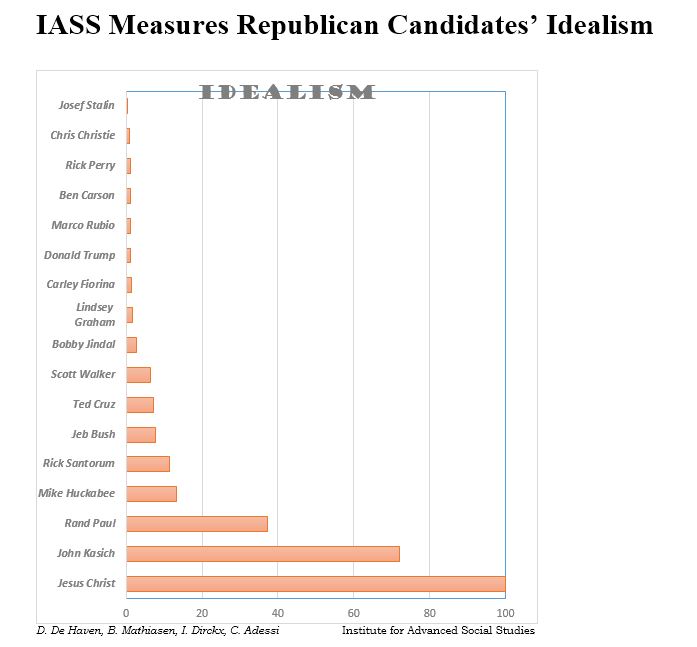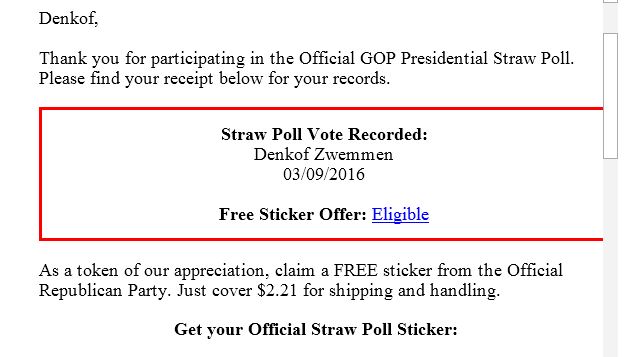To the Editor:
I have been reading columnists of The Wall Street Journal, The Washington Post and The New York Times as they all — in lock step — excoriate Donald Trump and, by implication, those who support him.
Out here in the hinterland, we evangelicals see things a little differently. We see folks like you as the Establishment. And while it is clear that you do not understand us, we do understand you. You think anyone who would vote for Mr. Trump isn’t very smart.
You scoff at religious-minded Trump supporters as hypocrites. After all, Mr. Trump has been married three times. He does not know that the second book of Paul’s letters to the church at Corinth is known as Second Corinthians, not “Two Corinthians.”
We know he is crass, often cruel and sometimes lacking in oratory refinements. We wish he weren’t so. But we marveled as we watched Mr. Trump demolish the primary tool that has allowed liberalism and secularism to control the debate for decades: political correctness.
Mr. Trump’s posturing, his crassness, his rudeness, his simplistic descriptions of international issues, his demeanor — we see it all. And yet we have decided to vote for him.
For all of Mr. Trump’s faults and sins and deficiencies, he won’t be the first president to have them. That is a basic tenet of Christianity — we know we are all deficient and sinful, and only God’s grace can heal us. We have faith that Mr. Trump will “seek the Lord” when confronted by the awesome duties of leading the greatest country in history.
We are desperate for a change in direction. And in future columns of The New York Times I will be looking for reasons that we should listen to you — part of the Establishment that got us into this mess.
C. Arnold McClure
Shirleysburg, Pa.
What Mr. McClure makes clear is that what seems, to the commentariat, the most obvious reason Donald Trump is patently ineligible for the United States Presidency – his character – is not a cause for concern to his supporters. They, says Mr. McClure, take the Christian view – not even necessarily fundamentalist Christian view – that we are all sinners and that we all can be redeemed. Trump’s eligibility for redemption makes him – in the eyes of Mr. McClure – just as eligible for President as anyone else.
(Where Mr. McClure is not so Christian, in that it hints at the sin of Pride, is his remark that “you do not understand us, we do understand you.” The misunderstanding, clearly, is mutual.)
Mr. McClure supports Donald Trump for only one reason: he believes that Trump will turn back the tide of “political correctness” which Mr. McClure sees as “the primary tool that has allowed liberalism and secularism to control the debate for decades.”
It is not clear what is encompassed by “the debate” which, according to Mr. McClure, is controlled by political correctness. Does it include the debate over economic inequality, the debate over climate change, the debate over how proactive our foreign policy should be, the debates over immigration, charter schools and federally imposed education guidelines, government ownership of huge tracts in the western states, government spending? If political correctness plays a role in these issues, it is an ambiguous one; politically correct arguments can be found to support any side of almost any of those disagreements.
Also, I am puzzled why Mr. McClure confines political correctness to secularism. Campaigns such as those to serve halal food in school and prison cafeterias or, on college campuses, to brand anti-Zionism as anti-Semitism, rely on political correctness. Could it be that Mr. McClure regards as secularist any religious activity beyond the bounds of Christianity?
Since he feels that political correctness is the worst evil confronting the country, we can assume that Mr. McClure is most upset by socially transformative initiatives, many of which have made their way into state and federal legislation, such as the right to gay marriage, and anti-discriminatory rules which curtail the free exercise of individual prerogatives within the community. McClure feels – with some justification – that political correctness has been imposed on those “out here in the hinterlands” by the coastal cultures where the lords of media dwell, what he refers to – again, with some justification – as “the Establishment.”
A mainstream Democrat may feel that income inequality is the country’s greatest problem, a mainstream Republican may feel that it is an oversized government; special interest warriors – environmentalists, feminists, anti-abortionists, Second Amendment defenders – may feel that they are confronting the country’s greatest evil.
None of the groups mentioned above would choose Donald Trump as their standard bearer. However, if you are someone who feels that political correctness is the overwhelming evil that besets the country – and while this may be an overstatement, it is true that, unlike special interests’ concerns, political correctness does permeate many aspects of contemporary quotidian life – every outrageous remark of Trump’s must feel like a sledge-hammer struck against the chains, forged by aliens, that not only bind your actions and your speech, but send strands of inhibition into your very thoughts.



